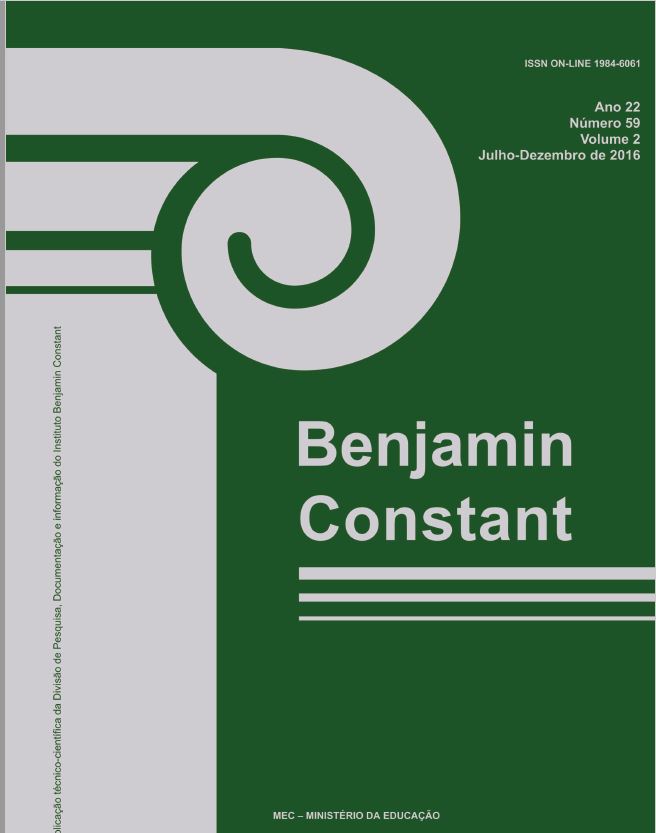Evaluation of Self-concept and locomotion in blind children and adolescents through the Orientation Game: treasure hunting
Abstract
The objective of this study was to analyze the effects that an Orientation Game program entails the development of self-concept and locomotion of two children and two blind adolescents, aged between eight and thirteen years, attended at the Brazilian Center for Rehabilitation and Support for the Visual Impairment of Goiás (CEBRAV/CAP). The method used was a quasi-experimental research design, which has the subject as its own control, using the Orientation Game, in which the student must take a course, in an unknown area, marked by circles, having in hand a special letter of adapted orientation and a cane. The evaluation of self-conception and locomotion was performed by two observers, one systematic and the other independent, who established the degree of agreement between them during the Baseline, Intervention and Follow-Up phases, making use of the Observation and Record Sheets. The results show an improvement of the self-concept and the locomotion of the blind children and adolescents in the categories of competence, personal value, autonomy, independence and lifestyle. The conclusion is that the Orientation Game has a positive effect on the construction of the self-concept and on the locomotion of blind children and adolescents to develop autonomy and independence, favoring social inclusion.





.png)
